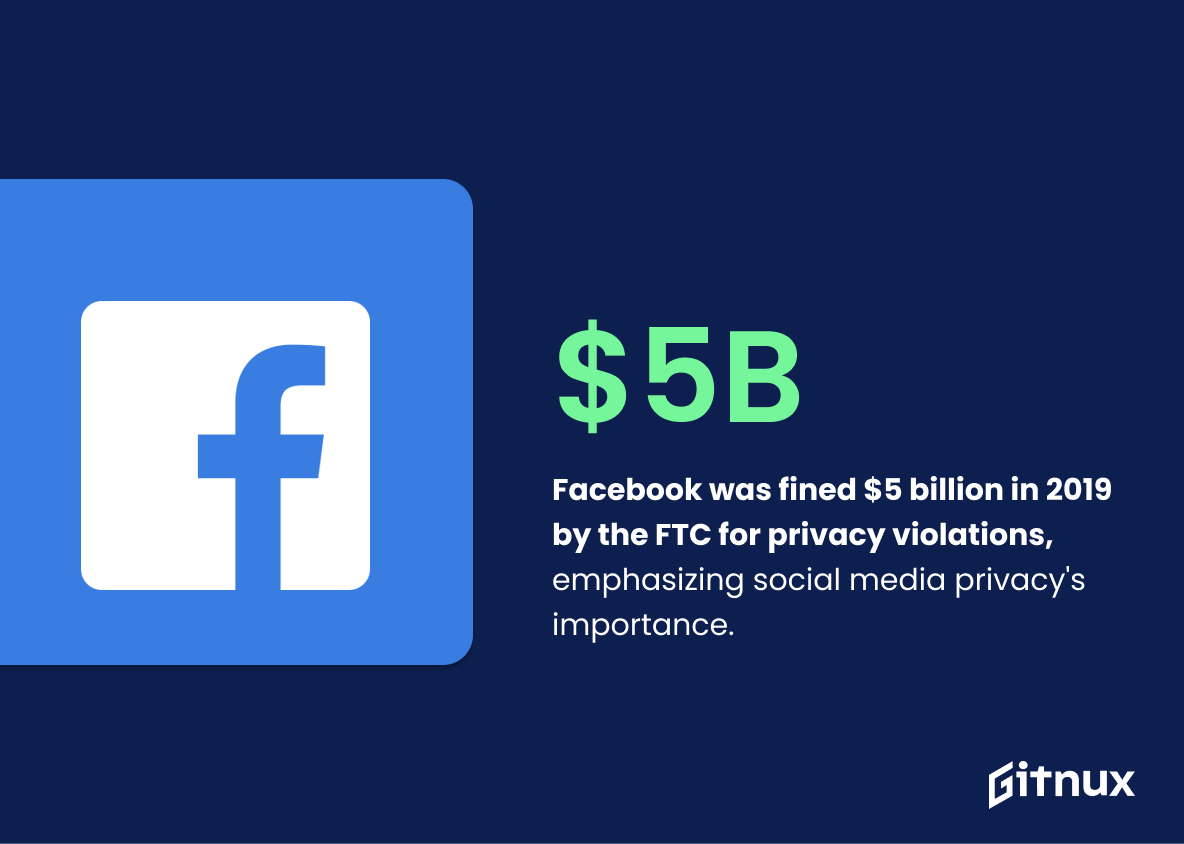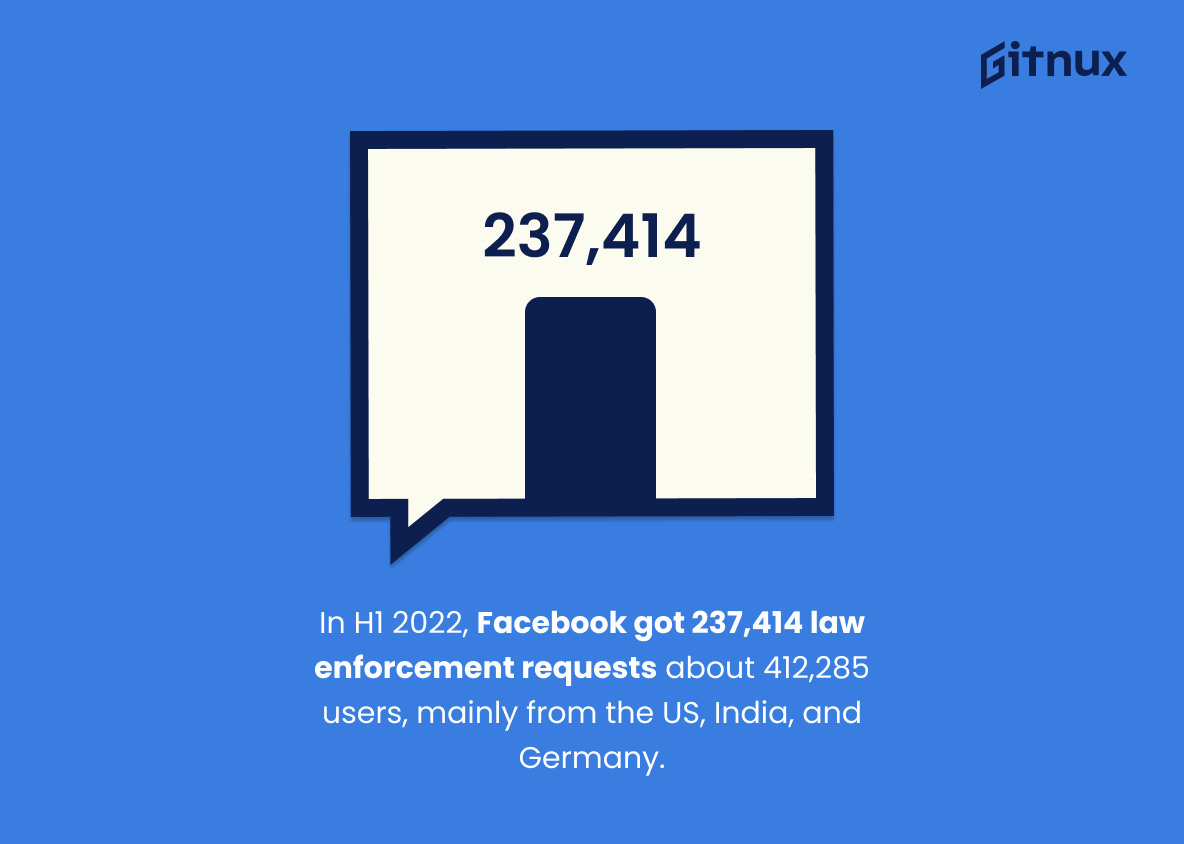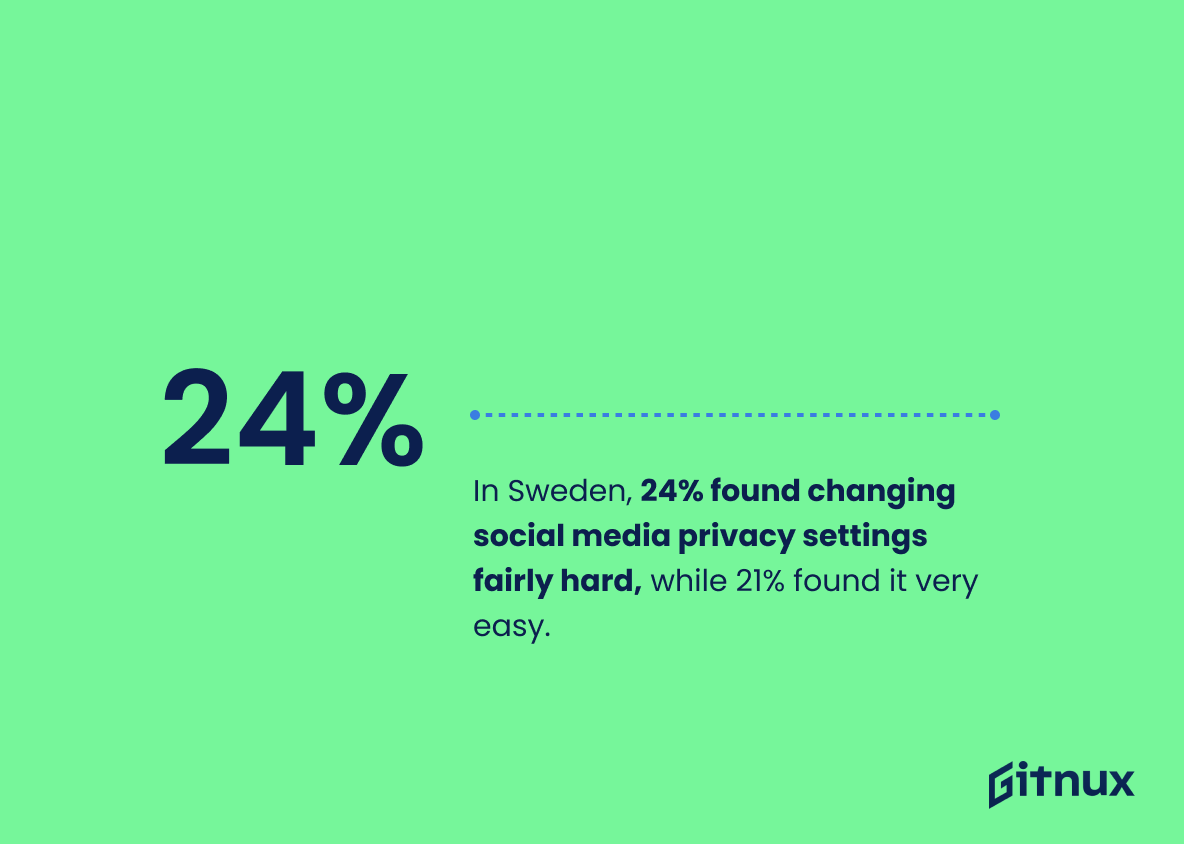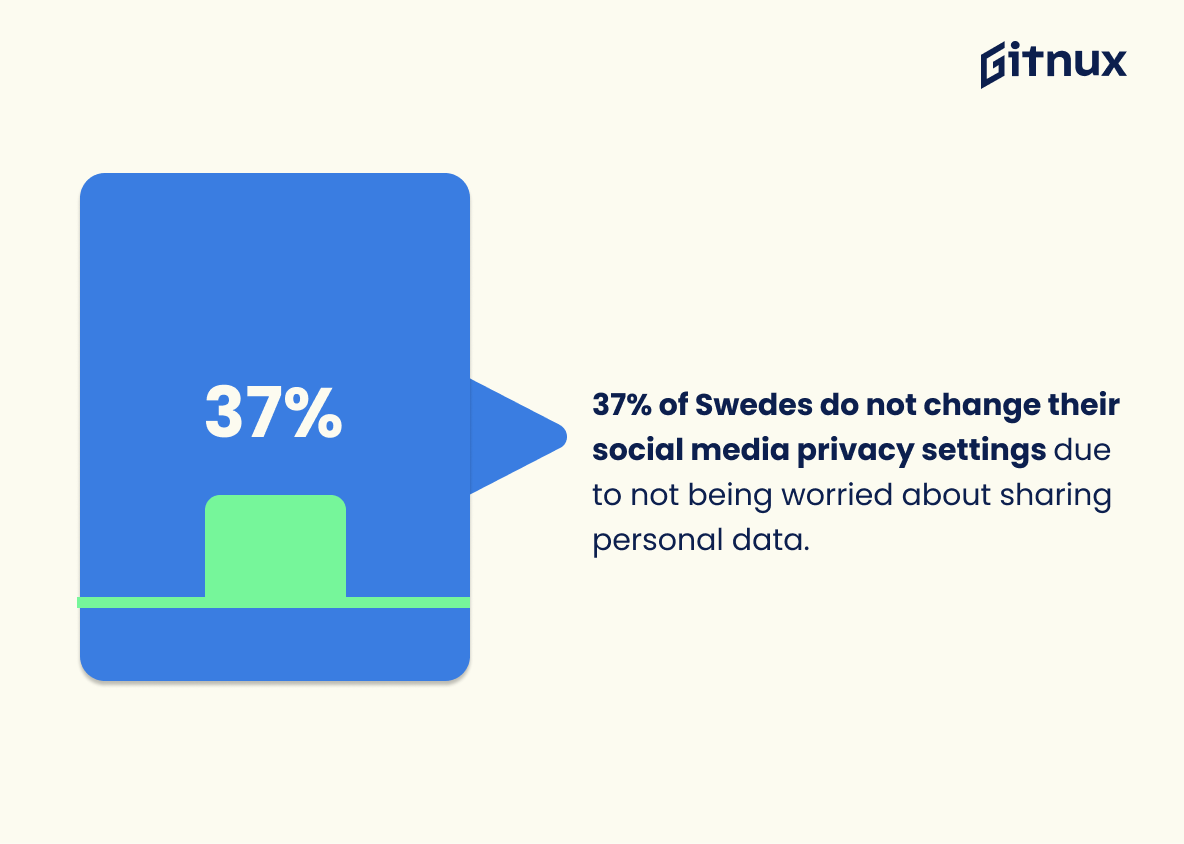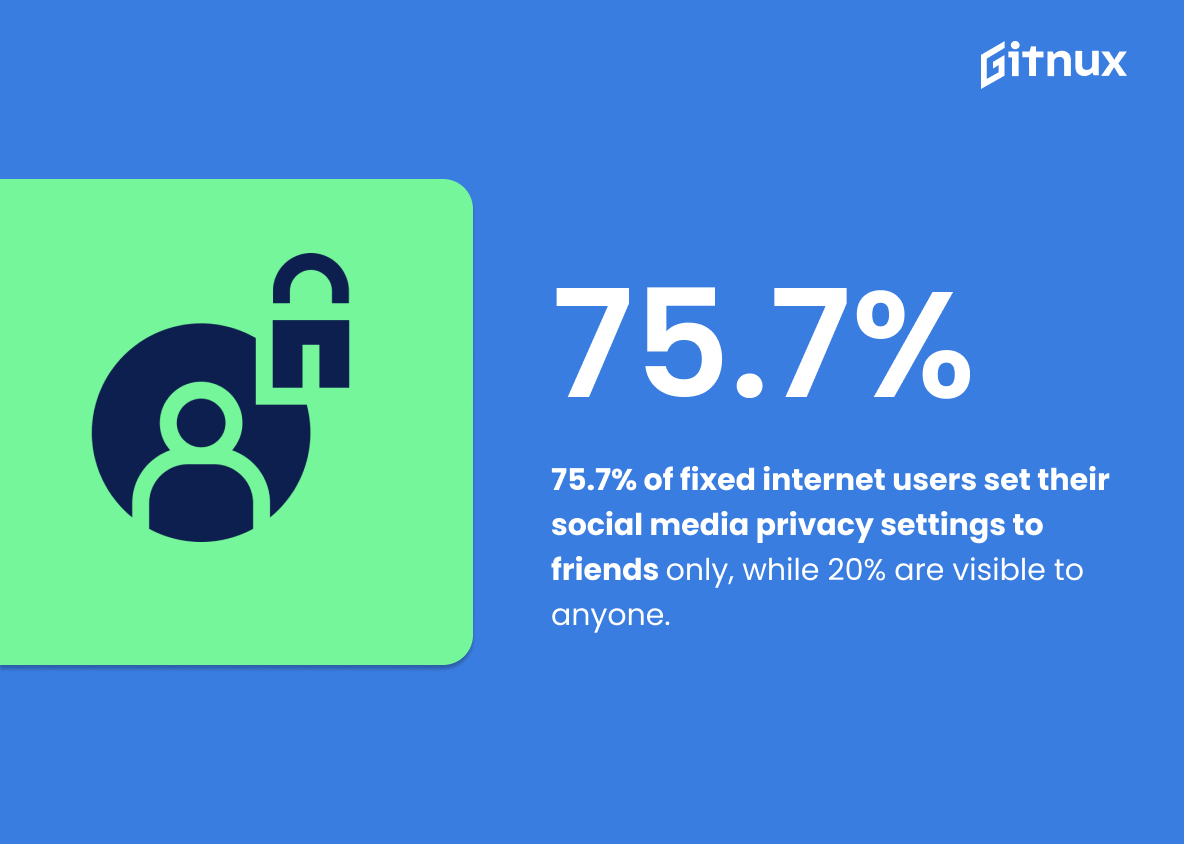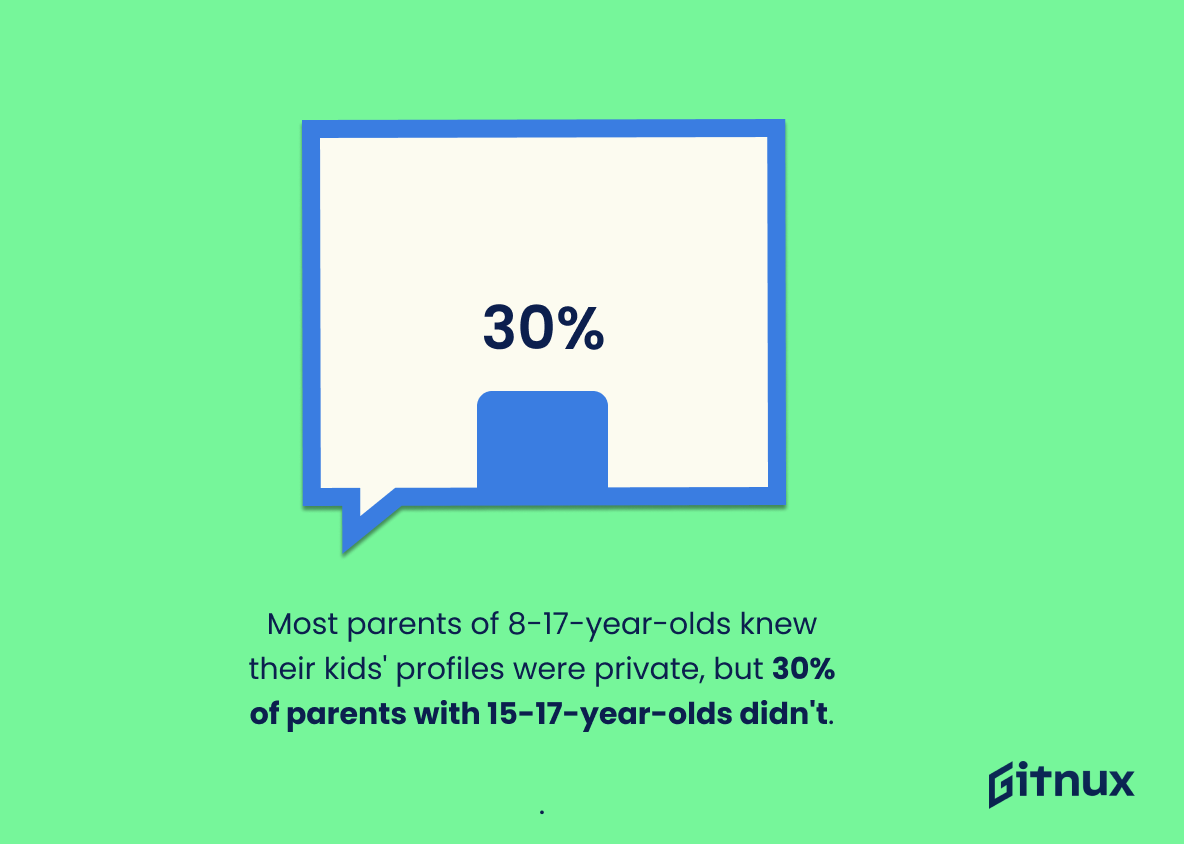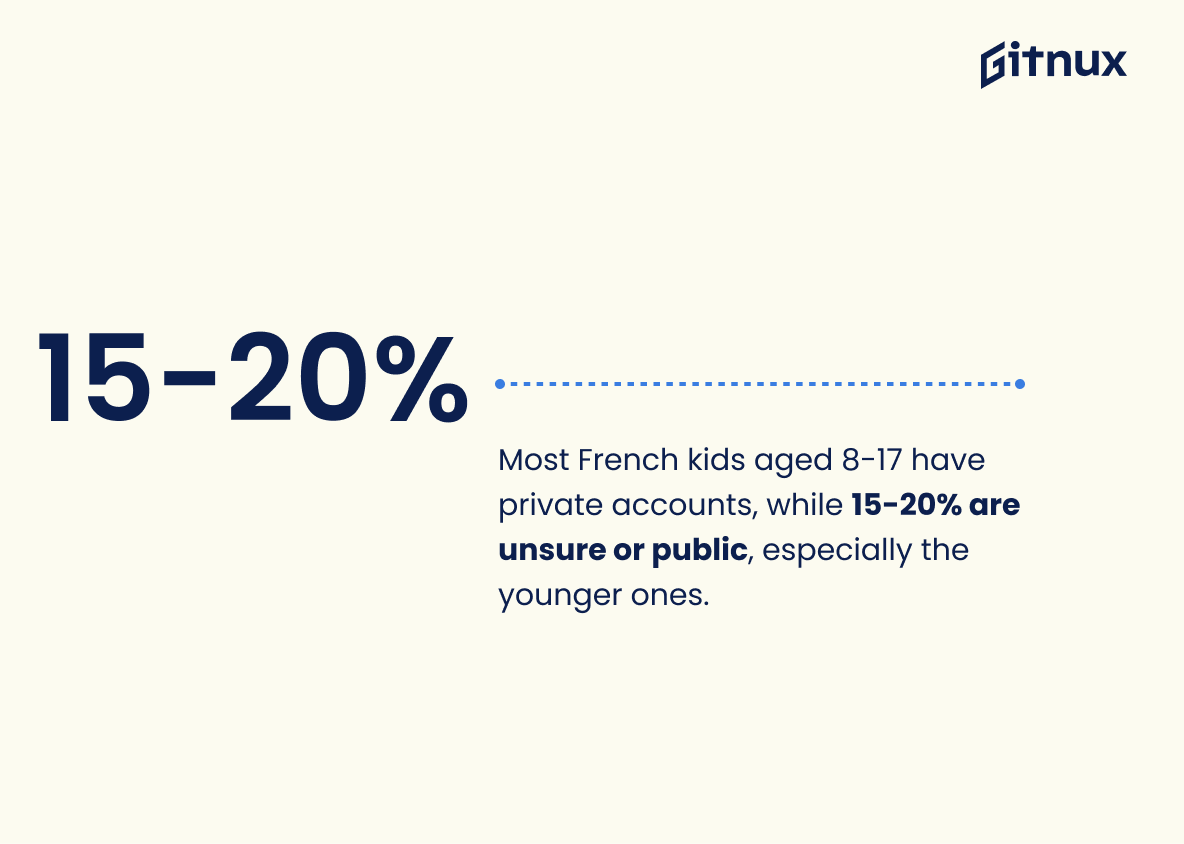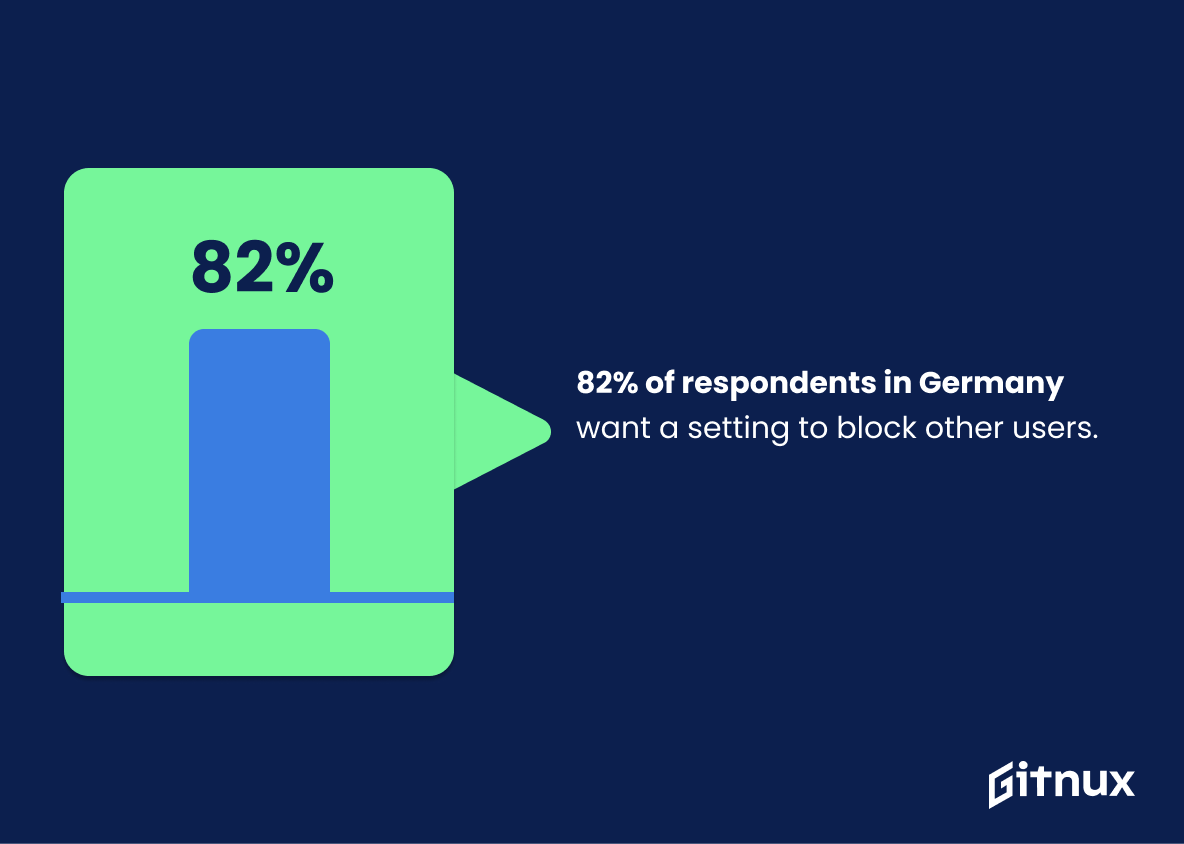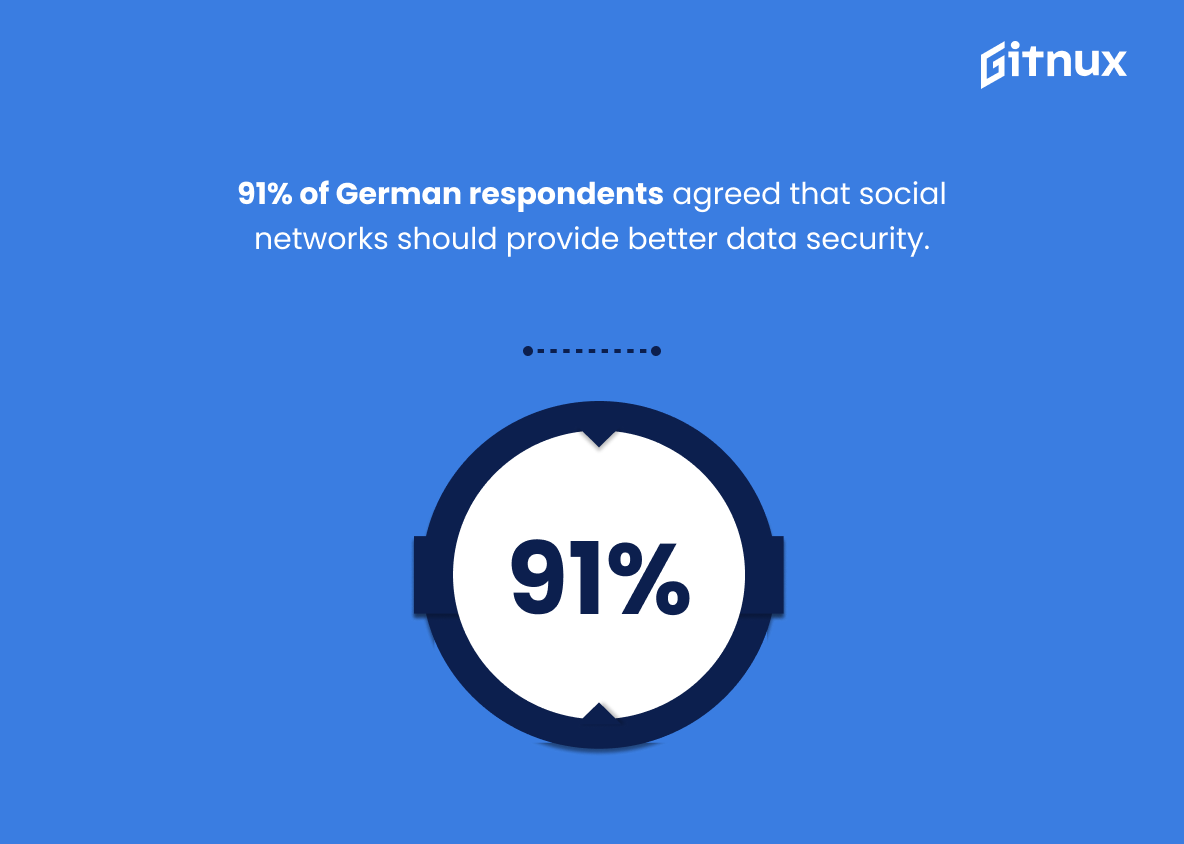Social media has become an integral part of our lives, and it’s no surprise that it has become a hot topic of discussion. With the rise of social media, comes the need to be aware of the privacy risks associated with it.
In this blog post, we will be looking at some of the latest social media privacy statistics to help you stay informed and take the necessary steps to protect your privacy online.
Social Media Privacy: The Most Important Statistics
24% of Swedish respondents found changing their profile privacy settings on social media to be fairly difficult, while 21% found it very easy.
The majority of parents of children aged 8-17 knew their kids’ social media profiles were set to private, while 30% of parents of 15-17 year olds had no knowledge of their kids’ privacy settings.
Social Media Privacy Statistics Overview
Facebook was fined over five billion dollars in 2019 for privacy violations, the largest fine the FTC had ever imposed, highlighting the importance of social media privacy.
This shows the severity of the consequences of not taking privacy seriously. It also serves as a warning to other social media companies that they must take privacy seriously or risk facing similar fines.
Facebook received 237,414 requests from law enforcement agencies regarding 412,285 users in the first half of 2022, mainly from the US, India and Germany.
On this, we can see the extent to which law enforcement agencies are using social media to access user information. It also highlights the need for users to be aware of the potential for their data to be accessed by government agencies and to take measures to protect their privacy.
24% of Swedish respondents found changing their profile privacy settings on social media to be fairly difficult, while 21% found it very easy.
The difficulty of navigating privacy settings on social media platforms can be important for users to understand in order to protect their data and privacy.
37% of Swedes do not change their social media privacy settings due to not being worried about sharing personal data.
Many people are not taking the necessary steps to protect their personal data online. This can lead to potential data breaches and other security risks, which can have serious implications for individuals and organizations.
71% of mobile users in Mexico have their social media profiles set to private, while 21% have them set to public.
The majority of mobile users in Mexico are taking steps to protect their privacy online. This is important, as it suggests that users are aware of the potential risks associated with having a public profile and are taking steps to protect their personal information.
75.7% of fixed internet users set their social media privacy settings to friends only, while 20% are visible to anyone.
The majority of fixed internet users are taking steps to protect their privacy on social media platforms. It shows that people are becoming more aware of the need to protect their personal information online. Additionally, it is important for businesses to understand this statistic in order to create more effective privacy policies for their customers.
The majority of parents of children aged 8-17 knew their kids’ social media profiles were set to private, while 30% of parents of 15-17 year olds had no knowledge of their kids’ privacy settings.
This highlights the need for parents to be aware of their children’s social media privacy settings, especially for older children. Without this knowledge, children may be exposed to potential risks such as cyberbullying, identity theft, and other online threats.
The majority of French children aged 8-17 have private accounts, while 15-20% of all children know that it is set to public and the younger ones are unsure.
Even though the majority of French children aged 8-17 have private accounts, there is still a significant portion that are not aware of the privacy settings and may be vulnerable to online predators.
82% of respondents in Germany want a setting to block other users.
Therefore, there is a need for social media platforms to provide users with the ability to control who can view their content and protect their privacy. Users are increasingly aware of their privacy rights and want to be able to control who can access their data.
91% of German respondents agreed that social networks should provide better data security.
The majority of German respondents are concerned about the data security of social media platforms, which indicates that data security is an important issue for social media users.
Conclusion
Overall, social media privacy statistics show that the majority of users are concerned about their privacy online. However, many of them are still not taking the necessary steps to protect themselves.
It is important for users to be aware of the potential risks of using social media and to take steps to protect their privacy. This includes using strong passwords, being careful about what they post, and using privacy settings. By taking these steps, users can ensure that their data is safe and secure.
References
1 – https://www.statista.com/statistics/1192850/fines-and-penalties-imposed-on-facebook/
2 – https://www.statista.com/statistics/287845/global-data-requests-from-facebook-by-federal-agencies-and-governments/
3 – https://www.statista.com/statistics/601784/difficulty-level-of-changing-privacy-settings-on-social-media-in-sweden/?locale=en
4 – https://www.statista.com/statistics/602119/reasons-for-not-changing-privacy-settings-on-social-media-sites-in-sweden/?locale=en
5 – https://www.statista.com/statistics/1067976/social-media-privacy-settings-mobile-users-mexico/?locale=en
6 – https://www.statista.com/statistics/1072503/social-media-privacy-settings-fixed-internet-users-mexico/?locale=en
7 – https://www.statista.com/statistics/1197934/share-french-parents-knowing-about-childrens-social-media-private-public-account/?locale=en
8 – https://www.statista.com/statistics/1197940/children-registered-social-media-account-private-public-setting-france/?locale=en
9 – https://www.statista.com/statistics/437254/privacy-preferred-social-network-settings-germany/?locale=en
10 – https://www.statista.com/statistics/437287/social-networks-user-comments-on-data-security-germany/?locale=en
ZipDo, cited June 2023: Social Media Privacy Statistics
